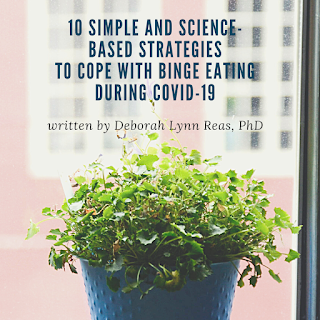What I Wish People Knew: A Deaf Woman Navigating Eating Disorder Treatment By: Brigitte McCauley-Philion
Eating disorders do not discriminate. It doesn’t matter what
ethnicity, body size or socio-economic status you are, you can still be
affected. What often gets overlooked is that eating disorders also affect
people of any ability. If you were to look at me, you wouldn’t know that
I have Atypical Anorexia because eating disorders don’t have a singular look.
What you also can’t tell by looking at me, is that I am Deaf.
In medical terms, I have a severe to profound sensorineural
hearing loss. What this means is that without hearing aids I can only hear
sounds as loud as an airplane. While hearing aids can help me be more aware of
sounds in my environment, this does not mean I can hear everything like someone
who doesn’t have hearing loss. In the past couple of years I have been
referred, assessed and reassessed for eating disorder treatment including day
programs, community support, and residential
treatment. To my surprise, little is known about how to accommodate an
individual with my level of hearing loss and communication needs.
Beyond 1:1 communication without any background noise, I require the use of an American Sign Language interpreter. I have an amazing audiologist who wrote a thorough letter outlining my communication needs. She basically reiterated what I requested, and that there is more than one way to communicate with someone who is deaf. Often times it is assumed that because I can speak very well, I can hear just as well. This statement couldn’t be more inaccurate. Good speech does not equate to good hearing. While I was navigating the medical system and seeking treatment for my eating disorder, I had the added stress of advocating for my communication needs. The majority of the time this was requiring the use of an ASL interpreter.
It would seem that little is known in the medical community
about how to support someone who is deaf. If an individual requires the use of
a wheelchair, a ramp can be built physical accommodations are more easily understood.
When accommodating someone who is Deaf, everything they use to receive
information from their environment is a tool. Unfortunately, this can result in
mental and listening fatigue along with extremely tired eyes. When I request
American Sign Language interpretation, I always follow up with where they can
book these services as I am generally well versed in ASL interpreting and
hospital/residential treatments requirements to have this service covered by
the province. However, often times this information is rarely heard or looked
into after its passed along. Though I have acquired the fine art of being able
to speech read, please keep in mind it is strictly that, an art. Only 30% of
speech is visible on the lips and through mouth movements; this, of course,
means 70% of speech is not is not made visible on the lips or seen through
mouth movements. It’ easy to just say, “Well, she can lip read”. I can, but for
a short period of time, as it is
mentally exhausting.
Here is an example of what could be seen when mouth reading:
“o wan up fee orn”. I’m not surprised the average person has NO idea what this
sentence means. To a Deaf individual who has the ability to lip read, they must
put in extra mental work to determine what is being said.. When what was
actually said was “Do you want a coffee from Tim Hortons?”. Now imagine doing
this while you are malnourished and trying to get treatment for an eating
disorder. Does that not sound exhausting?
Here are some things I wish eating disorder treatment
providers knew instead of assuming:
- Just because I use hearing aids, what I hear doesn't always
make sense to me. Yes, I make use of the benefit they give me, but for ME
visual language works best, American Sign Language.
- Providing a written copy of a presentation or treatment plan
does not mean it is now accessible to me. If I simply had to read everything, I
could have stayed home.
- If I request American Sign Language interpreters it’s because
I NEED it. I really don’t enjoy having someone there knowing some very personal
information, in this case about my eating disorder and behaviours.
- If you tell me ASL interpreters are not covered under your
organization, tell ME why. I likely have information on how this service may be
covered.
- Here are some things you should NEVER tell a person who is
Deaf: never mind, not important, tell you later, forget it etc. are statements
that can be offensive. If you said it, I want to know.
- Don’t assume good speech equates to good hearing. A
lot of factors go into this.
- Going through eating disorder treatment can be emotionally difficult. The last thing I want to do is focus on lip reading and understanding what is said.


Comments
Post a Comment